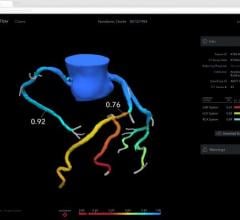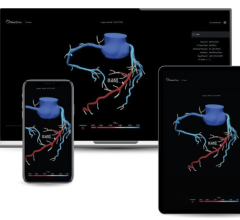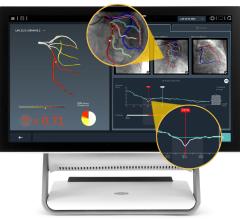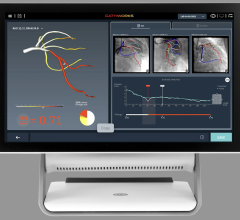
Data confirm the use of FFRCT and Plaque Analysis helps assess long-term risks, informing more personalized and effective treatment plans for patients with coronary artery disease.
Oct. 27, 2024 — HeartFlow, Inc. recently announced seven-year data confirming the use of HeartFlow’s AI-enabled fractional flow reserve computed tomography (FFRCT) and Plaque Analysis in the assessment of long-term risk of coronary artery disease (CAD) in clinically stable, symptomatic patients. The data show the HeartFlow platform provides clinicians with the insights needed to anticipate and mitigate adverse events, including myocardial infarctions, in symptomatic patients with stable chest pain. The data were presented at the 36th annual Transcatheter Cardiovascular Therapeutics conference in Washington, D.C.
ADVANCE-DK is data from a subset of the larger ADVANCE Registry, which prospectively evaluated the use of a coronary computed tomography angiography (CCTA) and FFRCT diagnostic pathway in real-world settings to determine the impact on decision-making, downstream invasive coronary angiography (ICA), revascularization, and major adverse cardiovascular events (MACE). ADVANCE-DK assessed three patient sets: those with normal FFRCT, those with subsequent complete revascularization (CR), and those with subsequent incomplete revascularization (IR).
Seven-year follow-up data from ADVANCE-DK demonstrates the completeness of revascularization predicts clinical outcomes and can be assessed non-invasively using coronary CCTA and FFRCT.
- Patients with IR, as assessed by FFRCT, had a higher long-term risk of adverse events than patients whose FFRCT assessment showed CR or patients who had normal FFRCT (16.2% IR versus 7.8% CR and 5.7% normal FFRCT, respectively)
- The combination of plaque quantification and characterization and lesion-specific physiology from FFRCT is a superior predictor of adverse cardiovascular events, through seven-year follow-up (AUC 0.73 vs 0.63 inclusive of baseline risk variables + CCTA)
“We theorized that by leveraging non-invasive FFRCT we could identify critical issues that had previously gone unnoticed, such as significant coronary lesions that would likely have been mistakenly categorized as visually insignificant,” said Kristian Tækker Madsen, M.D., cardiologist at University Hospital of Southern Denmark. “The prospective data with long-term follow-up in ADVANCE-DK alongside Plaque Analysis data gave us far more than that. FFRCT remains valuable for patients across all categories, and the combination of FFRCT and quantitative plaque data, especially after four years of follow up, can offer providers invaluable insight into a patient’s long-term risks informing more personalized and effective treatment plans.”
In a separate study, “Usefulness of FFRCT to Exclude Hemodynamically Significant Lesions in High-Risk NSTE-ACS,” lesion-specific FFRCT was further validated in patients with non-ST-segment elevation acute coronary syndrome (NSTE-ACS). The authors found that the use of CCTA with or without FFRCT “would have avoided 54% to 64% of unnecessary invasive assessments” in the high-risk population studied. At the lesion level, FFRCT far outperformed CCTA alone in identifying significant lesions likely to benefit from revascularization (AUC 0.84 versus 0.65, p<0.01), suggesting an enhanced capability to avoid unnecessary invasive coronary angiography (ICA). The data were published concurrently in the EuroIntervention journal in a peer-reviewed article titled “Usefulness of FFR-CT in Patients with High-risk NSTE-ACS.”1
“The ADVANCE-DK data show that our technologies go beyond identifying the immediate risks of CAD to include long-term residual risks across the spectrum of the disease. Data from patients with high-risk NSTE-ACS further suggest lesion-specific FFRCT provides an enhanced capability to avoid unnecessary invasive tests. With HeartFlow, clinicians receive actionable insights and data that are currently missing from traditional non-invasive and invasive diagnostic tools,” said Campbell Rogers, M.D., F.A.C.C., Chief Medical Officer of HeartFlow. “We’re grateful to all the participants and investigators who supported the collection of these valuable data as we build upon our clinical evidence demonstrating the value of HeartFlow ONE including FFRCT Analysis and AI-enabled Plaque Analysis in managing CAD.”
More information is available at www.heartflow.com.


 February 03, 2026
February 03, 2026 








